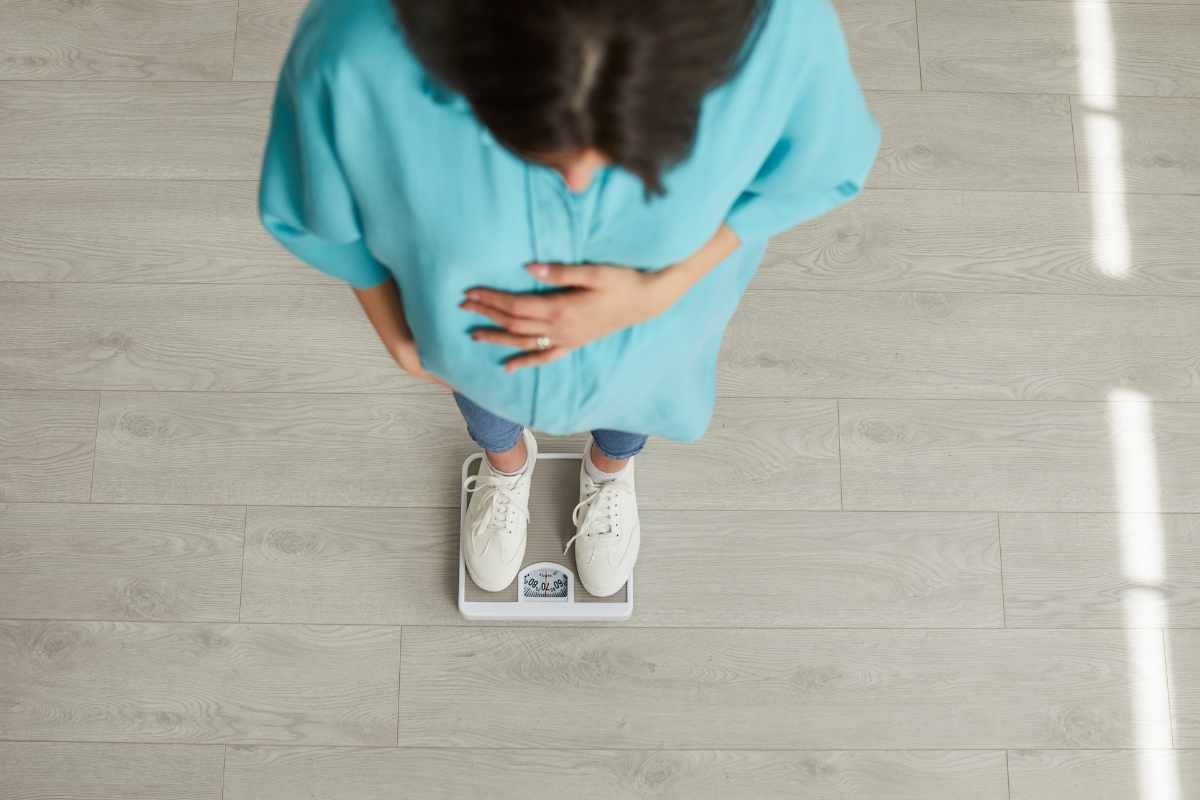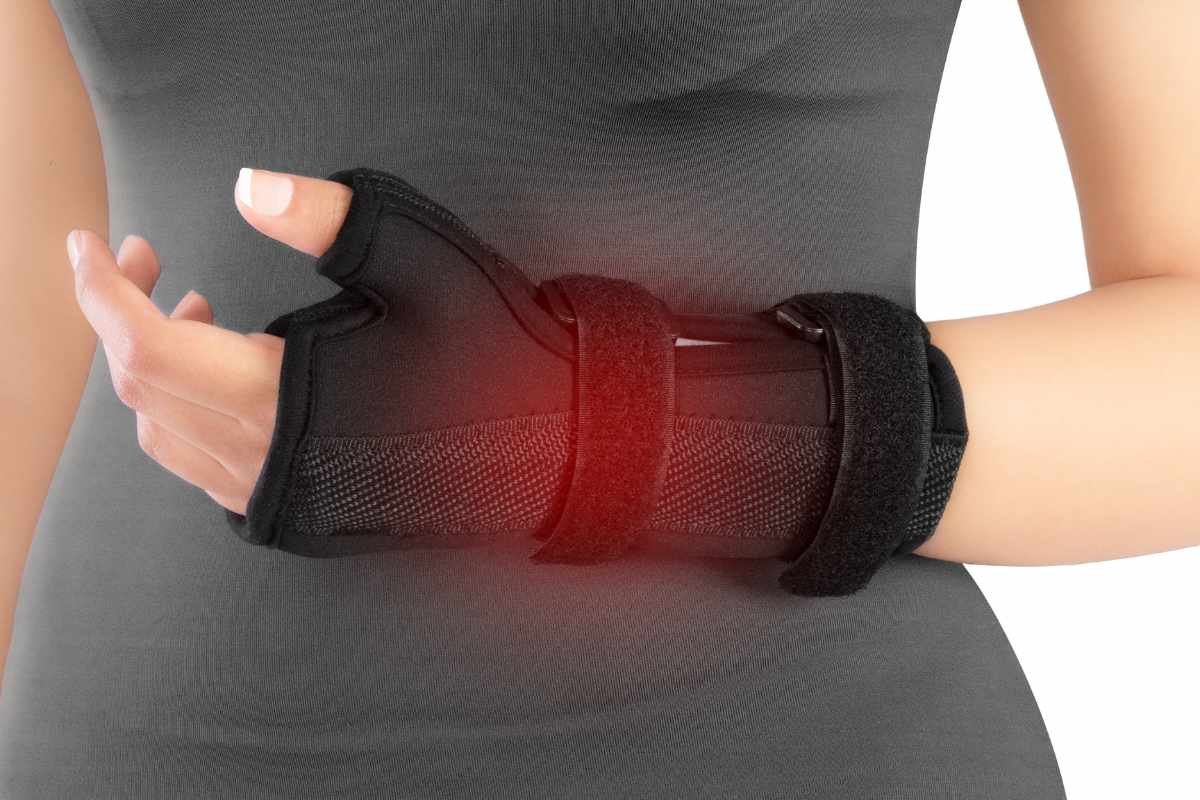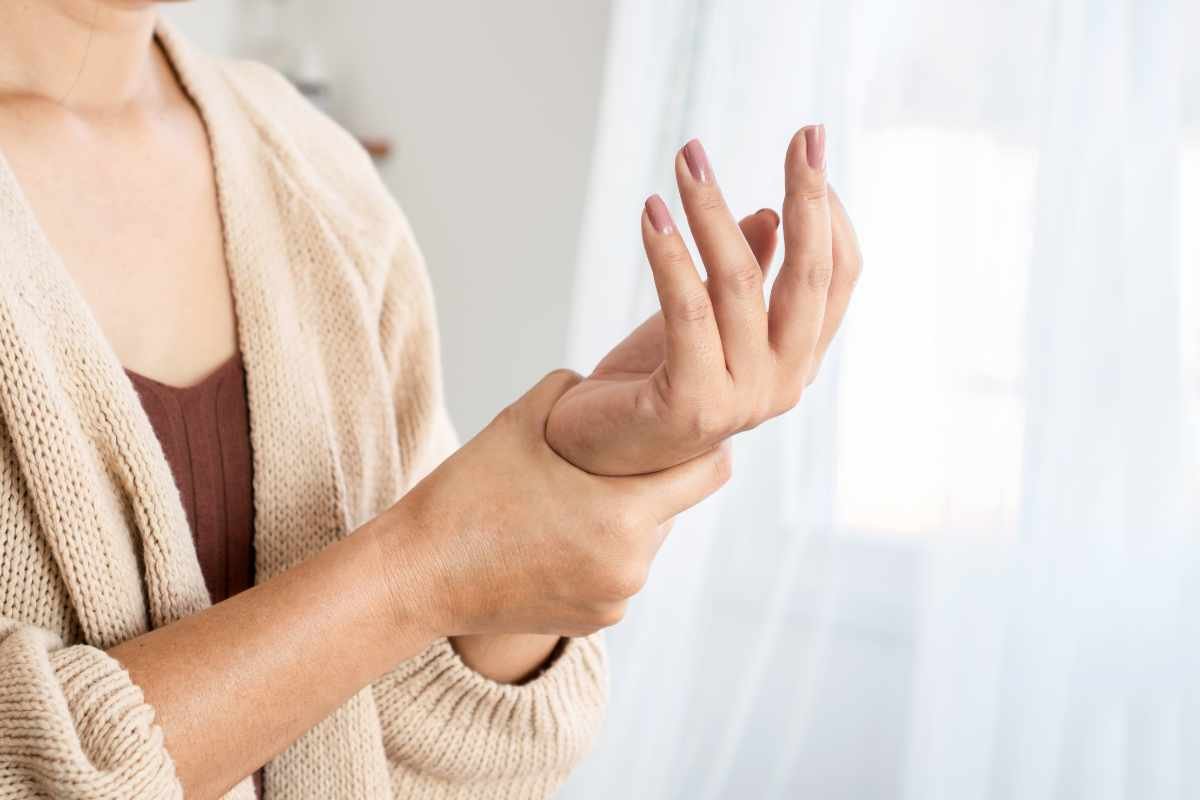Have you ever noticed your hands feeling strangely numb or tingly since you got pregnant?
You’re not alone. Many pregnant women experience these strange sensations, and it’s often due to a condition called carpal tunnel from pregnancy. It can be frustrating — suddenly, simple tasks like holding a pen or chopping vegetables feel awkward or even painful.
So, what’s going on? Why does carpal tunnel from pregnancy happen, and what can you do about it? In this article, we’ll break it down in a way that’s easy to understand. We’ll talk about the common causes, the tell-tale symptoms, and the best ways to find relief so you can focus more on the joys of pregnancy and less on the discomfort. Let’s dive in!
What is Carpal Tunnel Syndrome?
Carpal tunnel syndrome (CTS) is a condition caused by the compression of the median nerve, which runs through the carpal tunnel—a narrow passage in your wrist. When this nerve is compressed, it can lead to numbness, tingling, and pain in the hand and fingers. While CTS can happen to anyone, it is surprisingly common among pregnant women, often referred to as “carpal tunnel from pregnancy.”
Why Does Carpal Tunnel Syndrome Occur During Pregnancy?
It is primarily caused by the hormonal and physical changes that occur in the body during this period. Here are some key reasons why expectant mothers are more likely to develop carpal tunnel syndrome:
1. Fluid Retention
Pregnancy often leads to increased fluid retention. This extra fluid can accumulate in various parts of the body, including the hands and wrists, causing swelling. When the tissues around the carpal tunnel swell, they put pressure on the median nerve, leading to CTS.
2. Hormonal Changes
Pregnancy brings about significant hormonal shifts, including increased levels of relaxin. While relaxing is essential for preparing the body for childbirth by loosening ligaments, it can also cause swelling and compression in other areas, contributing to carpal tunnel from pregnancy.
3. Weight Gain

Weight gain is a natural part of pregnancy, but it can put extra strain on the body. The increased pressure on the wrists can exacerbate symptoms of carpal tunnel syndrome, especially if you gain weight quickly.
4. Changes in Posture
As your body adapts to the changes brought on by pregnancy, your posture may also change. These changes can affect how you use your hands and wrists, increasing the risk of developing CTS.
Recognizing the Symptoms of Carpal Tunnel from Pregnancy
Symptoms of CTS can range from mild to severe. It’s essential to recognize these signs early to seek appropriate treatment and relief:
1. Numbness or Tingling
A common symptom is numbness or a tingling sensation in the thumb, index finger, middle finger, and half of the ring finger. This sensation can sometimes feel like pins and needles.
2. Pain in the Wrist or Hand
You might experience a dull ache or sharp pain in the wrist or hand. The pain may also extend to the forearm in some cases.
3. Weakness in the Hands
Some pregnant women report weakness in their hands, making it difficult to grip objects or perform fine motor tasks.
4. Swelling
Swelling in the hands and fingers can further compress the median nerve, worsening the symptoms of carpal tunnel from pregnancy.
5. Worsening Symptoms at Night
Many women find that their symptoms worsen at night, possibly due to how they position their hands while sleeping.
Diagnosing Carpal Tunnel from Pregnancy
If you suspect you have CTS, it’s essential to consult with a healthcare professional. Here are some steps they might take to diagnose the condition:
1. Physical Examination
Your doctor may examine your hand and wrist to check for swelling, tenderness, or any signs of weakness.
2. Nerve Conduction Studies
In some cases, nerve conduction studies are performed to assess the electrical activity in the median nerve and confirm a diagnosis of carpal tunnel from pregnancy.
3. Electromyography (EMG)
An EMG test might be recommended to evaluate the electrical activity of your muscles and how well the median nerve is functioning.
Remedies and Treatment Options for Carpal Tunnel from Pregnancy
While CTS can be uncomfortable, there are several effective ways to manage and alleviate the symptoms:
1. Wrist Splints

Wearing a wrist splint can help keep your wrist in a neutral position, reducing pressure on the median nerve. This is particularly helpful at night when symptoms often worsen.
2. Cold or Warm Compresses
Applying a cold compress can help reduce swelling, while a warm compress can relieve stiffness and discomfort. Experiment with both to see which provides the most relief for your carpal tunnel from pregnancy.
3. Hand and Wrist Exercises
Certain exercises can help strengthen the muscles around the wrist and improve flexibility. Gentle stretching and range-of-motion exercises can alleviate symptoms of CTS.
4. Elevating Your Hands
Try to elevate your hands above heart level whenever possible, especially if you notice swelling. This can help reduce fluid retention and ease symptoms.
5. Massage Therapy
Massaging your wrists and hands can improve circulation and reduce tension in the muscles and tissues. Consider gentle massages as a way to manage carpal tunnel from pregnancy.
6. Acupuncture
Some studies suggest that acupuncture can effectively relieve symptoms of carpal tunnel from pregnancy. Speak to a certified practitioner to explore this option.
7. Medications

Over-the-counter pain relievers, such as acetaminophen, can provide temporary relief. However, always consult with your healthcare provider before taking any medication during pregnancy.
8. Rest and Adjustments
Sometimes, the simplest remedies are the most effective. Resting your hands, avoiding activities that exacerbate symptoms, and making ergonomic adjustments to how you work or perform daily tasks can significantly reduce the impact of carpal tunnel from pregnancy.
9. Maintain a Healthy Diet
A diet low in sodium and rich in potassium can help reduce fluid retention. Consuming foods high in Vitamin B6, such as bananas and avocados, may also help alleviate symptoms of carpal tunnel from pregnancy.
When to Seek Medical Help?
While carpal tunnel from pregnancy is often manageable with home remedies, there are situations where medical intervention is necessary. If your symptoms are severe, persistent, or interfere significantly with daily activities, consult your doctor. In rare cases, more advanced treatments such as corticosteroid injections or surgery may be considered.
Preventing Carpal Tunnel from Pregnancy
Though it may not always be possible to prevent carpal tunnel from pregnancy, there are steps you can take to reduce your risk:
- Stay Active: Regular exercise can improve circulation and reduce fluid retention.
- Maintain Good Posture: Pay attention to your posture, especially when sitting or using your hands.
- Take Frequent Breaks: When doing repetitive tasks, take frequent breaks to rest your hands and wrists.
- Hydrate Well: Staying well-hydrated can help reduce fluid retention.
Conclusion
Carpal tunnel from pregnancy can be a challenging condition, but understanding its causes, recognizing the symptoms, and taking proactive steps can make it easier to manage. Whether you find relief through home remedies, physical therapy, or medical treatment, there are numerous ways to alleviate the discomfort.
Remember: You don’t have to tolerate carpal tunnel from pregnancy alone—reach out to your healthcare provider for guidance and support. With the right care and attention, you can overcome this condition more comfortably and enjoy a healthier, happier pregnancy.







